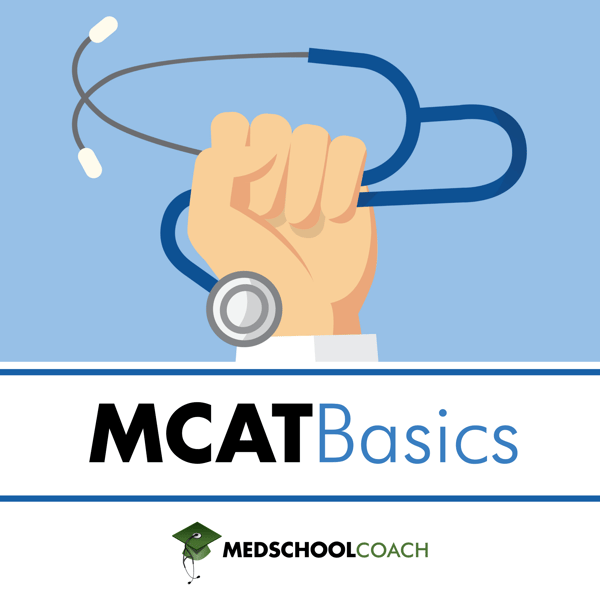Organic Chemistry Mechanisms To Know
MCAT Basics (from MedSchoolCoach)
MedSchoolCoach
4.6 • 612 Ratings
🗓️ 26 November 2024
⏱️ 16 minutes
🧾️ Download transcript
Summary
In this episode, Sam Smith will discuss and help you understand the essential organic chemistry mechanisms and reactions you may encounter when taking the MCAT.
From nucleophilic substitution reactions like SN1 and SN2 to aldol condensation and oxidation and reduction of alcohols, Sam will cover the high-yield topics that are crucial for your test prep. He will also touch on key IR and NMR values that could appear on your exam.
Visit medschoolcoach.com for more help with the MCAT.
Jump into the conversation:
(00:00) Intro
(01:42) SN1 and SN2 nucleophilic substitution reactions, mechanisms, and key concepts
(03:18) Carbonyl substitution and addition reactions
(06:12) Introduction to aldol condensation reactions
(07:17) Overview of oxidation and reduction reactions
(10:09) Explanation of Fischer esterification and saponification
(12:51) Summary of elimination reactions (E1 and E2) and their distinguishing features.
(13:38) What numbers to know for IR and NMR
Transcript
Click on a timestamp to play from that location
| 0:00.0 | Welcome to MCAT Basics, your ultimate guide to the essential topics you need to master for the MCAT, |
| 0:07.9 | brought to you by the physicians at med school coach. |
| 0:10.8 | Every week, Sam Smith breaks down high-yield MCAT topics, ensuring you're primed for success on test day. |
| 0:17.3 | Join Sam as we explore the most crucial subjects outlined by the AAMC pulled from official practice materials and third-party resources. |
| 0:25.6 | Get ready to elevate your MCAT game with topics tailored to maximize your score potential. |
| 0:30.9 | Hello, I'm Sam Smith. |
| 0:33.3 | In this podcast, I'm going to discuss what the most important organic chemistry reactions to know and have memorized are, which mechanisms should you know, which ones don't really matter. |
| 0:42.9 | I came up with this list a few different ways. |
| 0:45.5 | So the first was reviewing all the practice material by the AAMC. |
| 0:49.6 | You know, you could pick out a few that came up a few times. |
| 0:53.4 | And then also I went through, you know, some blog post, |
| 0:55.9 | some stuff from student doctor.net, read it, you know, kind of see what the consensus was in terms |
| 1:01.0 | of which reactions are most important to know and have memorized for the MCAT. This podcast is to essentially |
| 1:06.4 | say, okay, these are the ones you need to know. I'm really not going to go in too great of detail. |
| 1:10.7 | And that's just because these mechanisms, |
| 1:12.9 | it doesn't help that much to have somebody say it to you. |
| 1:15.6 | It helps really to have it drawn out and see it for you. |
| 1:18.1 | And this is a podcast, I can't really do that. |
| 1:19.7 | But hopefully you get what you need out of it. |
| 1:21.3 | And it helps you understand which areas you really need to focus on |
| 1:23.7 | in terms of studying for organic chemistry on the MCAP. |
| 1:36.0 | So here's what I've deemed as the most important reactions to know. |
... |
Please login to see the full transcript.
Disclaimer: The podcast and artwork embedded on this page are from MedSchoolCoach, and are the property of its owner and not affiliated with or endorsed by Tapesearch.
Generated transcripts are the property of MedSchoolCoach and are distributed freely under the Fair Use doctrine. Transcripts generated by Tapesearch are not guaranteed to be accurate.
Copyright © Tapesearch 2025.

